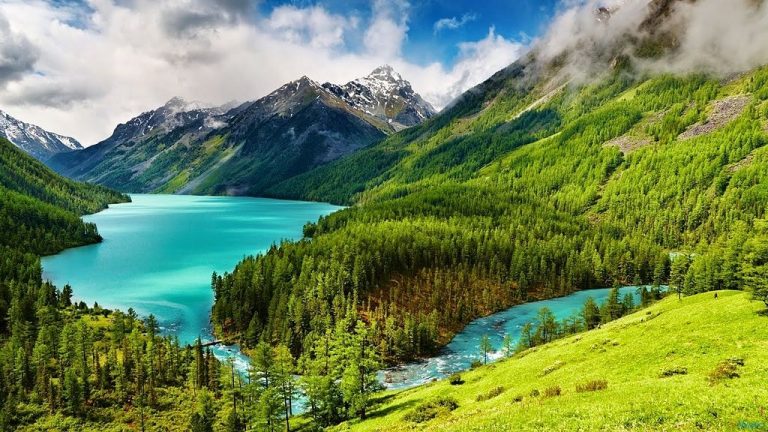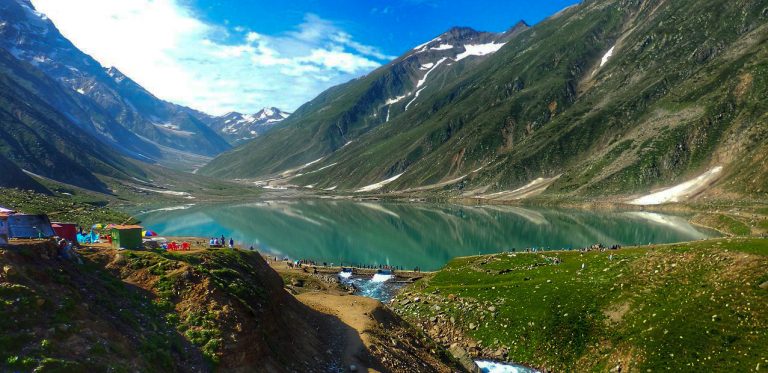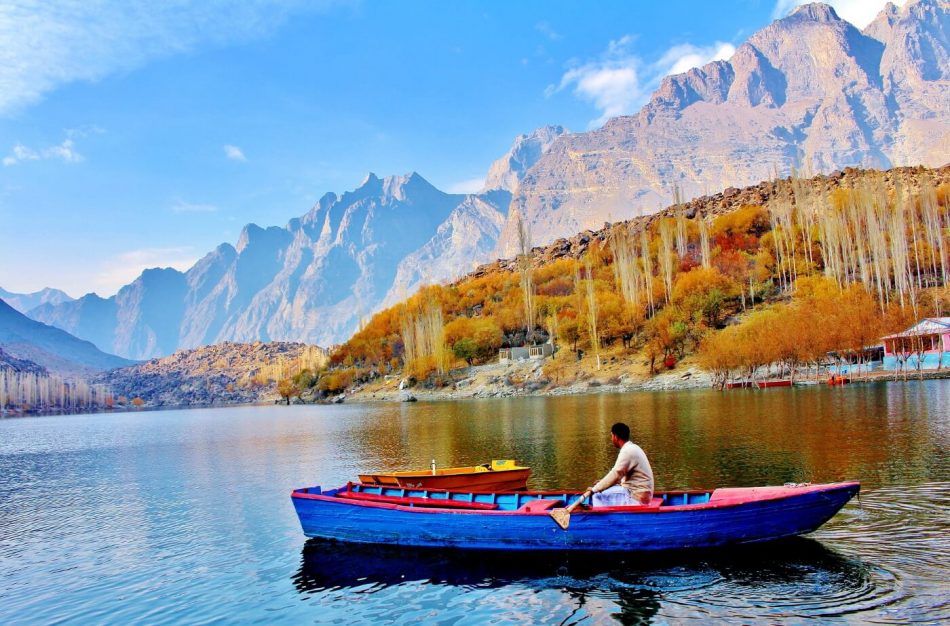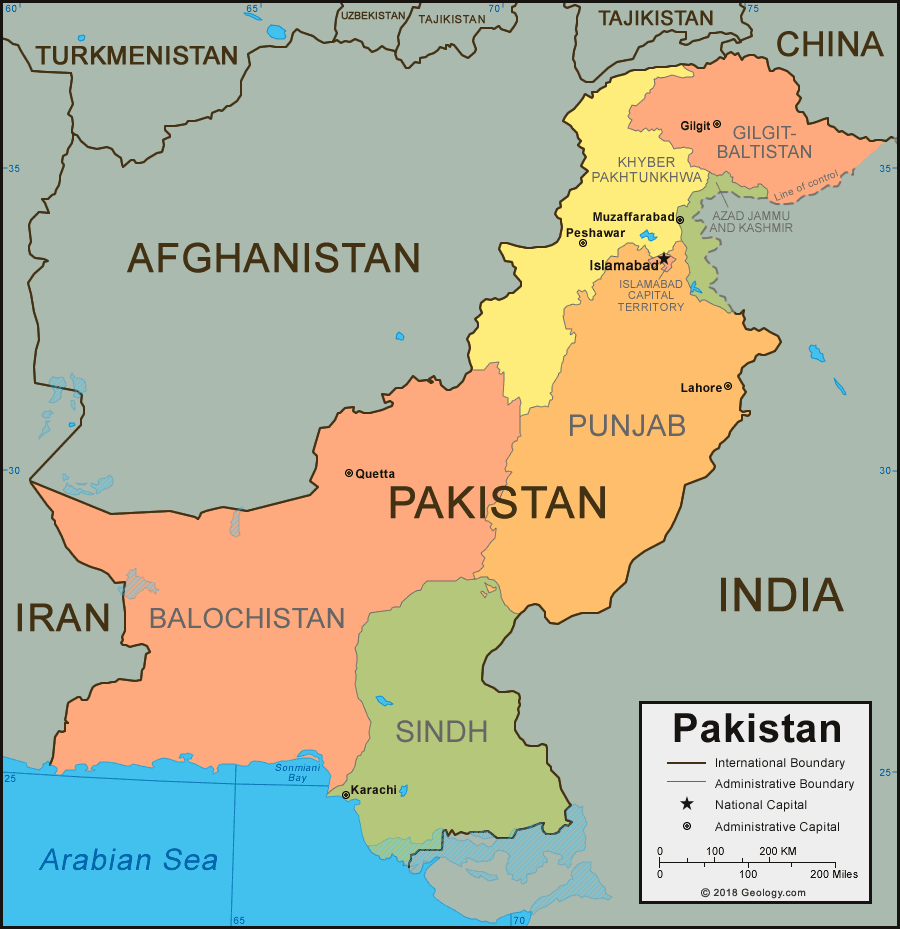



1 The Samjhauta Express – Pakistan And India Lahore to Delhi – by roothmens
5 jul. 2015
BBC PRESENTATION
*ALL RIGHTS ARE RESERVED TO THE OWNERS OR LICENSED.*
* IT IS NOT INTENDED TO VIOLATE COPYRIGHTED MATERIAL, WHICH ALL BELONGS TO ITS RECEIPTED OWNERS.THIS VIDEO IS ENTERTAINMENT PURPOSE ONLY.*
The Samjhauta Express commonly called the Friendship Express, is a twice-weekly train – Tuesdays and Fridays – that runs between Delhi and Attari in India and Lahore in Pakistan. The word samjhauta means “agreement”,”accord” and “compromise” in both Hindi and Urdu.
Until the reopening of the Thar Express, this was the only rail connection between the two countries. The train was started on 22 July 1976 following the Shimla Agreement and ran between Amritsar and Lahore, a distance of about 42 km. Following disturbances in Punjab in the late eighties, due to security reasons Indian Railways decided to terminate the service at Attari, where customs and immigration clearances take place. On 14 April 2000, in an agreement between Indian Railways and Pakistan Railways (PR), the distance was revised to cover just under three km.
It was a daily train when the service started, and changed to a bi-weekly schedule in 1994. Earlier the rakes were returned to the home country the same day but later in 2000 the rake remained overnight at that location.
Its termini are Lahore in Pakistan and Delhi in India. The border crossing takes place between Wagah in Pakistan and Attari in India. Originally, this was a through service with the same rake going all the way between the termini; later the Pakistani rake stopped at Attari at which point passengers had to change trains.
Now there is a train from Delhi to Attari where all passengers alight for customs and immigration. This train does not have any commercial stops between Delhi and Attari. It is incorrectly referred to as the Samjhauta Express and it is officially known as the Delhi-Attari or Attari-Delhi Express. The actual Samjhauta Express runs from Attari to Lahore, although the passengers are checked at Wagah, the first station on the Pakistani side. The train service was set up with an agreement between Indian Railways (IR) and Pakistan Railways (PR) to alternately use an Indian and a Pakistani rake and locomotive for the train, six months at a time.
The train usually has between four and eight coaches. The rake supplied by Pakistan is usually hauled by an Alco DL-543 class ALU20 diesel loco (Lahore shed), with the entire train in the standard dark green livery of PR.
The train’s first break of service was when it was discontinued on 1 January 2002 in the wake of the terrorist attack on the Indian Parliament on 13 December 2001. Service resumed on 15 January 2004. Service was also suspended following the 27 December 2007, assassination of Benazir Bhutto as a preventive measure to deny militants a “high-value target” that was of great symbolic importance to both India and Pakistan.
24 dec. 2019
3 Working Children in Pakistan: Concern’s response
22 mrt. 2011
4 Child Labor In Pakistan
23 jul. 2012
5 COVID-19 In Pakistan: Poverty Reduction Hits A Pause. What More Can Be Done? | Insight
9 dec. 2020
Pakistan has made remarkable progress in lifting its people out of poverty in the last 30 years. But COVID-19 has dealt a severe blow to its economy and reversed all the gains it had made in its poverty eradication efforts. An estimated 10 million more people are expected to fall into extreme poverty from the existing 50 million poor people in the country.
Will the government under its leader, Imran Khan be able bring relief to the pandemic stricken poor communities in the country? And can the people of Pakistan cope with the devastating impact of the pandemic?
For more great INSIGHT into the top issues affecting Asia: https://www.youtube.com/playlist?list…
==========================
ABOUT THE SHOW: Insight investigates and analyses topical issues that impact Asia and the rest of the world.
19 feb. 2010
7 Documentary on Child Labour in Pakistan in URDU/ENG with English Subtitles
25 apr. 2019
CUBICLES: VOICES UNHEARD DESCRIPTION:
Every parent wants his children to get good food, good education, and proper dress, but poverty deprives them of basic needs of life eventually they die out of extreme hunger and thirst.
Child Labor is a crime according to a study about 3.8 million children in the age group of 5-14 years are working in our country out of a total of 40 million children. While children belonging to well to do families enjoy multiple benefits the poor children live a life in pain and misery.
We expect from the related institutes to open their eyes and to never neglect these innocents
They can’t afford
9 Children of Karachi: From the streets to education – BBC News
Back to menu
10 Street Children Of Pakistan
Back to menu
28 mrt. 2012
11 Karachi City of Children
6 apr. 2016
Karachi – A city of children
This film explores Karachi, a metropolis of almost 20 million people and its street children.
A city where child exploitation is part of economic practice, in many sectors of the city, from refuse collection to industry.
Karachi has thousands of children living on its streets.
The United Nations estimate that 1.5 million children live on Pakistan’s streets.
Most will die before their 18th birthday.
The film interviews those working for the welfare of the street children.
The Azad Foundation has since 1998, provided welfare for the Street Children of Karachi.
KVTC have for over 23 years, supported children with disabilities in Karachi.
This film has been made by Karachi University School of Visual Arts as part of the Pakistan Calling film project support by Open Visor Productions, The Samosa Media project and the Ellie Maxwell bursary programme.
This film is dedicated to the memory of Sabeen Mahmud and Masood Hamid, who both dedicated themselves to the greater good of all that live in Karachi and greatly missed by all who knew them.
Please visit www.azadfoundation.org and www.kvtc.org.uk for more information about the issues of child welfare work in Karachi.
This film is part of the Pakistan Calling film project from The Samosa www.thesamosa.co.uk in partnership with the RSA. Find out more at: www.thersa.org/pkcalling
12 Honesty of Street Child Part 2 | Humans Of Pakistan
24 mei 2016
13 Street children in karachi, pakistan street souls part 2
15 Street children in karachi, pakistan street souls part 4
16 PESHAWAR PAKISTAN/ Пешавар Пакистан
29 nov. 2018
17 PESHAWAR CITY | STREET FOOD 2020
24 jan. 2020
18 Amazing Food at Street | Pakistan Food Street | Street Food Karachi
2 jan. 2020
19 A child living on the streets in Pakistan
17 feb. 2014
20 PAKISTAN: CHILDREN FORCED TO WORK TO MAKE ENDS MEET
21 jul. 2015
Children in Pakistan are still seen working in dangerous conditions for very little pay even though laws have been passed to clamp down on child labour.
Millions of children from poor families in the country do not have the advantage of gradually entering the realm of adult work and are forced to get jobs to make ends meet.
Non governmental organisations say the authorities are not doing enough to ensure that children are in school rather than at work.
Children working in hazardous industries in urban areas such as Karachi in Pakistan contribute more than 40 per cent of household incomes.
These children come from poor families and they work so their families can meet basic needs.
Almost two-thirds of households have income below the level of basic needs.
In a quarter of Pakistani households the eldest child worker is below the age of 14 and as many as 82 per cent of them live below the poverty line.
Children mostly work in industries like carpet weaving, sports goods, textiles, shoe making, packaging and the iron industry.
With no welfare state in Pakistan children say they have no option but to go to work.
Many are paid a pittance.
SOUNDBITE: (Urdu)
“I am working for the last three years… I have 10 brothers and sisters. I get 500 Pakistani Rupees (less than 10 U-S dollars) per month. We live in a rented house… I had to work to support my family.”
SUPER CAPTION: M Ali, Iron Worker
Other children do not work purely because of economic reasons but also because of social circumstances.
Salman works at a carpet weaving shop because his father, who is a drug addict, took a loan from his employer and could not pay it back.
SOUNDBITE: (Urdu)
“I am working here since six years… my father got a loan of 6000 Pakistani Rupees from my employer. That’s why I work here. My father is a drug addict.”
SUPER CAPTION: Salman, a carpet weaver
Two years ago the government passed a law it claimed would end child labour.
Some non-governmental organisations (N-G-Os) with the support of local governments say progress is being made.
Many schools and vocational centres have been set up by N-G-Os, not only in urban areas but rural regions as well, where working children get a chance to study.
But some say the government still isn’t doing enough to protect children.
SOUNDBITE: (English)
“This problem is so big, and the pathetic condition which I feel in our country compared to other developing countries that here there is no political will at all to deal with this child labour issue. The government institutions are not very sensitive towards that, there are no firm policies on that, the legislature are not interested to work on that because they are busy working on other things. Child labour has never been addressed at the national level.”
SUPER CAPTION: Zia Ahmed Awan, Lawyer, human rights activist and Board Member Child Care Foundation.
Experts say if the issue of child labour is to be taken seriously, the government must do more to control poverty, which is the root cause of the problem.
The N-G-Os say without stricter laws than at present – the fate of (m) millions children remains uncertain and gloomy.
21 TEDxKarachi 2011 – Imran Khan – Never Give up on Your Dreams
8 jun. 2011
Imran Khan speaks at TEDxKarachi 2011 on Never Giving up on Your Dreams
27th May 2011 : Making the Impossible Possible
About the Speaker: Imran Khan graduated from Oxford in 1972 with a degree in Politics and Economics. He was later inducted into the university’s Hall of Fame. As a cricketer, he achieved incredible success as the world’s premier all-rounder and lead Pakistan to its World Cup victory in 1992. After retiring from cricket, he went on to become a champion of social causes in Pakistan, going on to found the Shaukat Khanum Memorial Hospital, the country’s first cancer hospital that provides free treatment to thousands of patients annually. He has raised millions of dollars worth of funding through national and international campaigns.Khan has also been active in politics and is the founder of Pakistan’s Tehreek-e-Insaf (PTI) party. His most significant political work has been the restoration of those judges who were deposed under the Musharraf regime. As University Chancellor of the Namal College in Mianwali, he set up links with the University of Bradford creating further academic opportunities for the youth of Pakistan.
Imran Khan received many prestigious awards for his outstanding work for public welfare and personal achievements amongst which are the Hilal-i-Imtiaz, Pakistan’s highest civil honorary award, the Lifetime Achievement Award presented to him at the Asian Jewel Awards, and induction into both the Oxford University and the ICC Hall of Fame .
About TEDx
In the spirit of ideas worth spreading, TEDx is a program of local, self-organized events that bring people together to share a TED-like experience. At a TEDx event, TEDTalks video and live speakers combine to spark deep discussion and connection in a small group. These local, self-organized events are branded TEDx, where x = independently organized TED event. The TED Conference provides general guidance for the TEDx program, but individual TEDx events are self-organized. (Subject to certain rules and regulations.)
The TEDxKarachi is event is operated under license from TED.
22 Imran Khan’s first ever interview on 60 Minutes (1984) | 60 Minutes Australia
23 Mr and Mrs Khan (1995) – Imran and Jemima’s first interview since marriage | 60 Minutes Australia
1 aug. 2018
24 🇵🇰 Pakistan – Prime Minister Addresses General Debate, 74th Session
27 sep. 2019
Imran Khan, Prime Minister of the Islamic Republic of Pakistan, addresses the general debate of the 74th Session of the General Assembly of the UN (New York, 24 – 30 September 2019).
Prime Minister of Pakistan Imran Khan today warned that what is going to happen in Kashmir when the curfew is lifted “will be a bloodbath.”
Addressing the General Assembly today (27 Sep) in New York, Prime Minister of Pakistan Imran Khan said, “when a nuclear armed country fights to the end, it will have consequences far beyond the borders.”
He added, “It will have consequences for the world, which is why I repeat I am here, because I’m warning you, it is not a threat, it’s a fair worry that where are we heading?”
On Kashmir, Khan further asked, “what is the world community going to do? Is it going to appease a market of 1.2 billion, or is it going to stand up for justice and humanity?”
The Prime Minister reiterated, “I’ve come here to tell the UN, you got to, this is a test for the United Nations. You are the one who guaranteed the people of Kashmir the right of self-determination. They are suffering because of that and this is the time.”
On Islamophobia, Khan said, “Islamophobia since 911 has grown at a pace that is alarming. Human communities live together. There should be understanding amongst them. But Islamophobia is creating a division. Muslim women wearing hijab is becoming an issue, it’s becoming an issue in some country, hijab is some sort of weapon.”
He also said, “this Islamic terrorism, Islamic radicalism, and sadly used by leaders, this has been the main reason for Islamophobia, and it has caused pain among Muslims.”
The Prime Minister continued, “we, in Muslim countries watch this Islamophobia travelling abroad and it’s getting worse. And may I just say Mr. President that in European countries, it is marginalizing Muslim communities. And we all know that marginalization leads to radicalization.”
Khan also noted the importance of combating climate change and corruption.
25 Child Labour, A documentary (Pakistan)
16 aug. 2016
26 Pakistan Burns At 50°C: Can It Turn The Heat Down On Climate Change? | Insight
2 aug. 2022
27 Teen with Super Strength Pushes Car
13 nov. 2018
Filmed in Montreal, Quebec